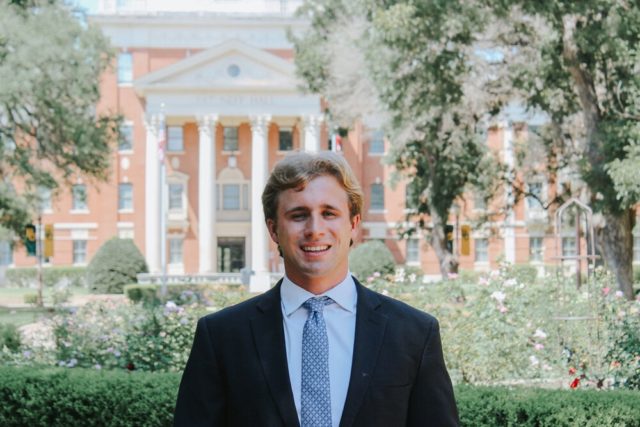By Spencer Burress | Guest Contributor
As a junior who loves Baylor University and counts it as one of my greatest blessings, I would like to share some candid thoughts regarding some of the recent decisions that its administration has made. Specifically, I would like to comment on the new diversity, equity and inclusion initiative.
Before I criticize this new movement, I want to make it overwhelmingly clear that I am a follower of Jesus Christ; as such, I believe diversity is a good thing. I know that the kingdom of heaven will be full of people worshipping God “from every tribe and language and people and nation” (Revelation 5:9). Jesus “ransomed people for God” (Revelation 5:9) regardless of their ethnicities or physical characteristics. Beyond redeeming us, he has made these diverse peoples into one, with our common characteristic being the Lord we serve; “For through him we both have access in one Spirit to the Father” (Ephesians 2:18).
So, I agree with Baylor when it emphasizes Galatians 3:28, which states “There is neither Jew nor Greek, there is neither slave nor free, there is no male or female, for you are all one in Christ Jesus.”
But, the danger in the recent course forced upon students is the fact that Baylor attempts to blend the timeless truths of scripture with modern progressive doctrine — a doctrine that, in many ways, completely opposes Christianity. As Christians, we should never attempt to hitch ourselves to movements comprised of many people who passionately despise the sound doctrine of our Lord. The progressive movement in our culture promotes unbiblical beliefs on gender, human sexuality, the sanctity of human life and the place of God in society, to list some examples. We cannot adopt the same language of the people who espouse these ideas without becoming increasingly like them (and therefore less like Christ). I noticed phrases in the online course like “microaggressions” — a term adopted from the radical left in the United States that few would have taken seriously even five years ago. If we think we can reconcile these antithetical ideologies by blending their terminologies, we are sorely mistaken. Don’t take my word for it. Take Paul’s: “Do not be unequally yoked with unbelievers. For what partnership has righteousness with lawlessness?” (2 Corinthians 6:14).
Furthermore, as a student, I am forced to take the DEI course by the Baylor administration (yes, forced). We cannot register for classes until we take the course, and I feel incredibly patronized. Forcing students to take the course gives off the impression that Baylor believes we are all little children who must be chided for our backward views. Although I can only speak for myself and my friend group, I can assure you that we are not prejudiced against anybody because of race, gender or any other quality that people identify with. As Christians, we know better. It is beyond condescending to force us to take this course when the student body is made up of adults who learned to treat others with respect in the first grade.
But, you may contend, not everybody treats others with dignity and respect. To that I say, do you really think an online course will solve that problem? Will somebody with hate or bias in their heart all of a sudden treat others with love because some obligatory program on their Canvas page told them to “check their unconscious biases?” Absolutely not. If the course is directed to students who already know how to treat other human beings, then it is patronizing. If it is directed to hateful people, it is simply ineffective. So, what purpose is this course serving, exactly? To me, it appears that Baylor has gotten caught up in the current trends of the world, and it is attempting to conform to the mold. It is claiming to take steps toward greater diversity, equity and inclusion without actually taking those steps. From this student’s perspective, the program seems like a facade that Baylor is trying to use as a cover to hide itself from the world’s disapproval. For a Christian university called to be a light in the world, this is wrong.
To close, I would like to offer not further criticism but a positive suggestion. If our goal is to improve the treatment of marginalized groups and ensure that they are included in society, we should not chastise or enforce ineffective programs. We should preach the gospel. Instead of offering tips like “check your unconscious biases,” we should turn to the words of Jesus. I think that a student body guided by the principle, “Treat others the way you want to be treated” (Matthew 7:12) will look a whole lot more like heaven than a group of people walking on eggshells trying not to say the wrong thing and offend somebody. Wanting everybody to be treated with equal dignity and respect starts with helping people gain an understanding of the cross of Christ, upon which he “ransomed people for God from every tribe and language and people and nation.” Baylor should attempt to look more like Christ and less like the world.
If this letter comes across as too harsh, or if there is any way the reader would like to lovingly correct me, I am all ears.



